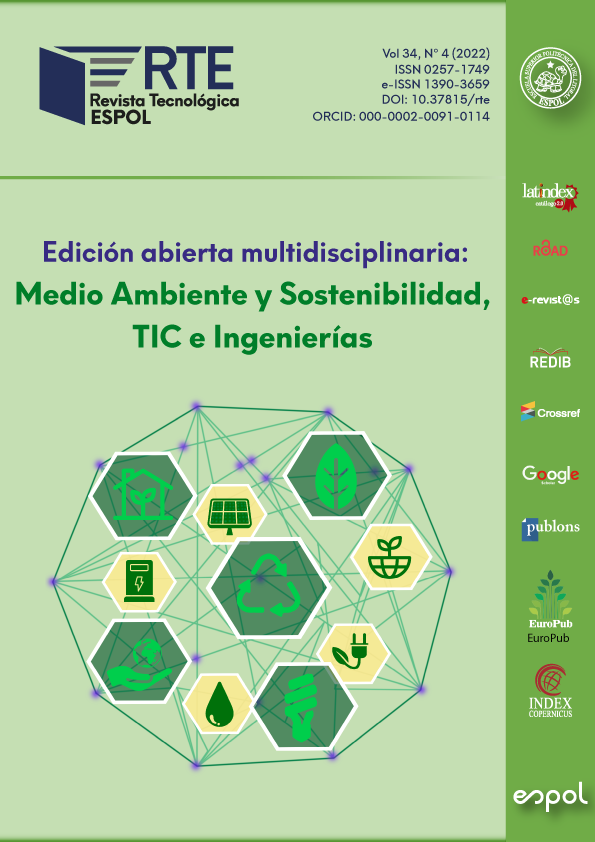Este artículo presenta la implementación práctica de una técnica de control de frecuencia (inercia virtual) en un sistema de almacenamiento energético basado en el uso de supercondensadores (SAE-SC). La propuesta estuvo diseñada para brindar soporte de frecuencia a una microrred eléctrica aislada real que integra fuentes de generación renovable (solar fotovoltaica, 15 kWp), generación síncrona convencional (térmico diésel, 44 kVA) y sistemas de almacenamiento energético (SAE-SC, 30 kW). Tomando como caso base la operación en condiciones normales de una microrred híbrida solar-diésel (una situación típica de sistemas insulares), se comprobó la efectividad de las labores de soporte de frecuencia provisto por el SAE-SC y se evaluó la resiliencia de la microrred en términos de esta variable. Los resultados experimentales mostraron que la implementación de la propuesta permitió reducir las fluctuaciones de frecuencia de la microrred en un 30%, representando una mejora significativa en la calidad del suministro eléctrico. Los experimentos se llevaron a cabo en el Laboratorio de Micro-Red del Centro Científico, Tecnológico y de Investigación Balzay (CCTI-B) de la Universidad de Cuenca.

Esta obra está bajo una licencia internacional Creative Commons Atribución-NoComercial 4.0.
Referencias
Ahmed, I., Rehan, M., Basit, A., & Hong, K.-S. (2022). Greenhouse gases emission reduction for electric power generation sector by efficient dispatching of thermal plants integrated with renewable systems. Scientific Reports, 12(1). Scopus. https://doi.org/10.1038/s41598-022-15983-0
Ali, H., Magdy, G., & Xu, D. (2021). A new optimal robust controller for frequency stability of interconnected hybrid microgrids considering non-inertia sources and uncertainties. International Journal of Electrical Power & Energy Systems, 128, 106651. https://doi.org/10.1016/j.ijepes.2020.106651
Bevrani, H., Ise, T., & Miura, Y. (2014). Virtual synchronous generators: A survey and new perspectives. International Journal of Electrical Power & Energy Systems, 54, 244-254. https://doi.org/10.1016/j.ijepes.2013.07.009
D’Arco, S., Suul, J. A., & Fosso, O. B. (2015). A Virtual Synchronous Machine implementation for distributed control of power converters in SmartGrids. Electric Power Systems Research, 122, 180-197. https://doi.org/10.1016/j.epsr.2015.01.001
Espinoza, J. L., González, L. G., & Sempértegui, R. (2017). Micro grid laboratory as a tool for research on non-conventional energy sources in Ecuador. 2017 IEEE International Autumn Meeting on Power, Electronics and Computing (ROPEC), 1-7. https://doi.org/10.1109/ROPEC.2017.8261615
Fernández-Guillamón, A., Martínez-Lucas, G., Molina-García, Á., & Sarasua, J.-I. (2020). Hybrid Wind–PV Frequency Control Strategy under Variable Weather Conditions in Isolated Power Systems. Sustainability, 12(18), 7750. https://doi.org/10.3390/su12187750
Győrvári, B., & Vokony, I. (2017). Technical issues of solar- and gas engine based MicroGrids: Assessment on feasibility by using present technologies. 2017 IEEE International Conference on Environment and Electrical Engineering and 2017 IEEE Industrial and Commercial Power Systems Europe (EEEIC / I&CPS Europe), 1-6. https://doi.org/10.1109/EEEIC.2017.7977650
Martinez, S., Mendonca, H., de Castro, R. M., & Ochoa, D. (2019). Contribution of electric vehicles to power system ancillary services beyond distributed energy storage. En N. Kishor & J. Fraile-Ardanuy (Eds.), ICT for Electric Vehicle Integration with the Smart Grid (pp. 265-284). Institution of Engineering and Technology. https://doi.org/10.1049/PBTR016E_ch10
Martínez-Lucas, G., Sarasúa, J. I., Pérez-Díaz, J. I., Martínez, S., & Ochoa, D. (2020). Analysis of the Implementation of the Primary and/or Inertial Frequency Control in Variable Speed Wind Turbines in an Isolated Power System with High Renewable Penetration. Case Study: El Hierro Power System. Electronics, 9(6), 901. https://doi.org/10.3390/electronics9060901
Ochoa, D. (2021). Modelo simplificado de una interfaz de conexión a la red basada en un convertidor electrónico de potencia para estudios de red en régimen dinámico. Ingenius, 26, 87-98. https://doi.org/10.17163/ingenius.n26.2021.08
Ochoa, D., & Martinez, S. (2018). Proposals for Enhancing Frequency Control in Weak and Isolated Power Systems: Application to the Wind-Diesel Power System of San Cristobal Island-Ecuador. Energies, 11(4), 910. https://doi.org/10.3390/en11040910
Ochoa, D., & Martinez, S. (2019). Modeling an Isolated Hybrid Wind-Diesel Power System for Performing Frequency Control Studies. A Case of Study: San Cristobal Island, Galapagos–Ecuador. IEEE Latin America Transactions, 17(05), 775-787. https://doi.org/10.1109/TLA.2019.8891946
Pazmiño, I., Martinez, S., & Ochoa, D. (2021). Analysis of Control Strategies Based on Virtual Inertia for the Improvement of Frequency Stability in an Islanded Grid with Wind Generators and Battery Energy Storage Systems. Energies, 14(3), 698. https://doi.org/10.3390/en14030698
Pazmiño, I., Ochoa, D., Minaya, E. P., & Mera, H. P. (2022). Use of Battery Energy Storage Systems to Enhance the Frequency Stability of an Islanded Microgrid Based on Hybrid Photovoltaic-Diesel Generation. En M. I. A. Chauvin, M. Botto-Tobar, A. Díaz Cadena, & S. Montes León (Eds.), Sustainability, Energy and City (Vol. 379, pp. 48-58). Springer International Publishing. https://doi.org/10.1007/978-3-030-94262-5_5
Rey, J. M., Vera, G. A., Acevedo-Rueda, P., Solano, J., Mantilla, M. A., Llanos, J., & Sáez, D. (2022). A Review of Microgrids in Latin America: Laboratories and Test Systems. IEEE Latin America Transactions, 20(6), 1000-1011. https://doi.org/10.1109/TLA.2022.9757743
Samanta, H., Pramanik, M., Das, A., Bhattacharjee, A., Bhattacharya, K. D., Deb, N. K., Sengupta, S., & Saha, H. (2019). Development of a novel controller for DC-DC boost converter for DC Microgrid. TENCON 2019 - 2019 IEEE Region 10 Conference (TENCON), 1124-1129. https://doi.org/10.1109/TENCON.2019.8929521
Sarmiento-Vintimilla, J. C., Torres, E., Larruskain, D. M., & Pérez-Molina, M. J. (2022). Applications, Operational Architectures and Development of Virtual Power Plants as a Strategy to Facilitate the Integration of Distributed Energy Resources. Energies, 15(3), 775. https://doi.org/10.3390/en15030775
Smith, M., & Ton, D. (2013). Key Connections: The U.S. Department of Energy?s Microgrid Initiative. IEEE Power and Energy Magazine, 11(4), 22-27. https://doi.org/10.1109/MPE.2013.2258276
Stadler, M., & Naslé, A. (2019). Planning and implementation of bankable microgrids. The Electricity Journal, 32(5), 24-29. https://doi.org/10.1016/j.tej.2019.05.004
Tamrakar, U., Shrestha, D., Maharjan, M., Bhattarai, B. P., Hansen, T. M., & Tonkoski, R. (2017). Virtual Inertia: Current Trends and Future Directions. Applied Sciences, 7(7), 654. https://doi.org/10.3390/app7070654
Thomsen, B., Guerrero, J. M., & Thøgersen, P. B. (2014). Faroe Islands wind-powered space heating microgrid using self-excited 220-kW induction generator. IEEE Transactions on Sustainable Energy, 5(4), 1361-1366. Scopus. https://doi.org/10.1109/TSTE.2014.2339373











